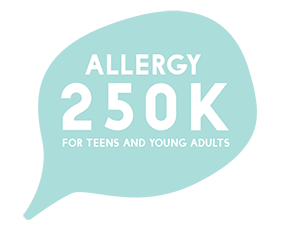Managing your health
Top Tips
- Continue to see a clinical immunology/allergy specialist as an adult.
- Be open and honest with your doctor so that they can provide the best care and advice.
- Be prepared for your appointments by having a list of questions written down.
As a young adult, you should be managing your health with less support from your parents. You may still want your parents to come with you to some appointments, but you need to be able to attend appointments independently too. It is important to take more responsibility for your health and make your own health decisions with guidance from people you trust.
There are many health care providers that can help you
- Your GP is the health care provider that generally oversees all your health care needs and provides referrals to other health care providers.
- An allergy specialist is the best person to confirm what you are allergic to and decide what allergy treatments will help you.
- Allergy dietitians can you help you to manage your food allergies. They can teach you how to read food labels and how to make safe food choices. They can also make sure you are getting all the nutrition you need and give recipe ideas and product information.
- You will usually see an allergy nurse in a public hospital, but some allergy specialists also have allergy nurses. Allergy nurses may do your skin testing and provide you with information about how to manage your allergies. If you are having allergen immunotherapy, an allergy nurse will usually give you this treatment.
- Clinical psychologists are really helpful if your allergies are stopping you from doing everyday activities. They can help you to manage your anxiety so that you can still to all the fun things that teens like to do.
- You may need to see a dermatologist for eczema if you are having trouble managing your eczema well.
- You may need to see a respiratory specialist for asthma if you are having trouble managing your asthma well.
Young adults are encouraged to be under the care of an allergy specialist
As a young adult, your appointments with a clinical immunology/allergy specialist may be less frequent than when you were a child. Most adults only see their specialist every two or three years if their allergies are well controlled and managed. If your allergies are changing or are complex, you may need to see your clinical immunology/allergy specialist more frequently.
If you have not seen an allergy specialist for more than two or three years, talk to your GP about a referral.
How to make the most of your health appointments
- It is a good idea to see the same GP where possible. They will get to know you and you are more likely to feel comfortable with someone you know as well.
- If you are not doing this already, it is a good idea to start having the first part of your appointment with your doctor (GP or clinical immunology/allergy specialist) on your own. Your parents can then join your appointment for the last few minutes. As a young adult, your parents will have less involvement with your appointments.
- Be open and honest with your doctor – they are more likely to be able to help you if they have all the information. It is good to talk to your doctor about how you are managing your allergies in everyday life.
- Tell your doctor if you feel anxious about your allergies and if your allergies are stopping you from joining in on activities such as eating out, going to parties, going to university, travelling or trying new foods if you have a food allergy.
- Have a list of questions written down to ask your doctor to help you remember them.
- You should see your doctor at least every 12 to 18 months, if you have been prescribed an adrenaline injector (EpiPen® or Anapen®) for a prescription renewal and also an updated ASCIA Action Plan for Anaphylaxis. If you have not been prescribed an adrenaline injector, your doctor will note your date of next review on your ASCIA Action Plan.
- Do not wait for your next scheduled review if you are worried about your allergies. If you have had an allergic reaction or you think your allergies have changed, make an appointment to see your doctor.
- Different treatments are available for different allergies. Talk to your doctor at each appointment about what possible treatments are available for your allergies, particularly if you have not been able to manage them well.
- If you have asthma, it is important that your asthma is managed well, particularly if you are at risk of anaphylaxis. Make sure you discuss your asthma management with your doctor in case changes to medications are needed.
What should your doctor provide you with in an appointment?
If you are seeing your doctor for a scheduled review, you should be provided with the following:
- A prescription for 2 adrenaline injectors, if required.
- An updated ASCIA Action Plan completed and signed by your doctor. You just need to add your photo to it. Your doctor should talk you through the ASCIA Action Plan so that you know how to recognise an allergic reaction and know when and how to use your adrenaline injectors. Ideally your doctor should have a trainer device for you to practice with.
- Your doctor should also talk to you about the importance of not standing or walking if you have anaphylaxis.
- If you are seeing your GP, they should provide you with a referral to a clinical immunology/allergy specialist if required.
Your doctor should also provide you with information about:
- how to avoid the things you are allergic to if it is a new allergy.
- how to use your medications if you have any.
- how to manage your asthma if you have asthma.
- patient support organisations where you can get more information and support.
You may want to take notes during your appointment as you may be given a lot of information.
My Health Record
Unless you or your parents opted out, you will have a My Health Record. There are a range of phone Apps that help you to access your My Health Record more easily. My Health Record helps you to keep track of your health.
For more information about how to access your My Health Record, read the My Health Record fact sheets from the National Allergy Council.

